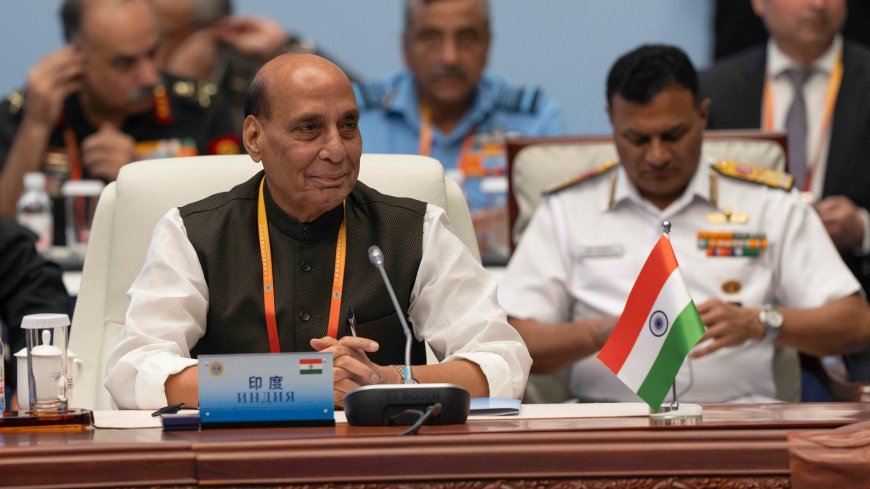Rajnath Singh Declines to Sign SCO Statement Over Terrorism Concerns
Defence Minister Rajnath Singh refused to sign the joint statement of the Shanghai Cooperation Organisation (SCO) due to unaddressed cross-border terrorism concerns. The meeting concluded without a joint statement as India's concerns were not explicitly acknowledged.

Defence Minister Rajnath Singh on Thursday has reportedly refused to sign the joint statement of the Shanghai Cooperation Organisation (SCO). As per reports, the defence minister refused to dot India's name on the document due to its failure to address India's concern regarding cross-border terrorism. India's Defence Minister Rajnath Singh attends the Defense Ministers' Meeting of the Shanghai Cooperation Organization Members States in Qingdao (AP)
At the SCO Summit, India raised its concerns regarding cross-border terrorism, citing the Pahalgam attack and conflict with Pakistan.
However, as per PTI, Rajnath Singh refused to endorse the joint statement as it not did explicitly address India's concerns.
Citing sources close to the matter, PTI reported that India's refusal comes due to no clear-cut approach to combat terrorism, including cross-border terror attacks.
With Singh's refusal, the SCO Defence Ministers' Meeting concluded with no joint statement from the participants. The meeting was held from June 25 to 26 in Qingdao, China.
Defence leaders from member states such as India, China, Russia, and other Central Asian nations came together to discuss issues related to regional and international peace and security.
'No double standards'
Speaking at the defence leaders meeting, Rajnath Singh called on SCO members to work together to reduce the risk of terrorism in the region.
The Indian defence minister stated that there can be \"no double standards\" when it comes to combating terrorism.
\"The biggest challenges that we are facing in our region are related to peace, security and trust-deficit. And the root cause of these problems is increasing radicalisation, extremism and terrorism,\" said Singh.
\"Dealing with these challenges requires decisive action, and we must unite in our fight against these evils for our collective safety and security,\" he added further.
Citing the Pahalgam attack, Singh highlighted India's concern and Pakistan's backing for Lashkar-e-Taiba and its off shoot - The Resistance Front - which is said to have been behind the April terror attack.
\"The pattern of the Pahalgam attack matches with LeT's previous terror attacks in India. India’s zero tolerance for terrorism was demonstrated through its actions,\" he said.
\"It includes our right to defend ourselves against terrorism. We have shown that epicentres of terrorism are no longer safe and we will not hesitate to target them,\" he added further.
A total of 26 people were killed in the Pahalgam attack on April 22. In response to the attack, India launched a military strike under 'Operation Sindoor' targeting terror camps and bases in Pakistan and Pakistan-occupied Kashmir.
Operation Sindoor triggered a larger conflict between India and Pakistan, resulting in a four day stand-off between both nations.
What's Your Reaction?
 Like
0
Like
0
 Dislike
0
Dislike
0
 Love
0
Love
0
 Funny
0
Funny
0
 Angry
0
Angry
0
 Sad
0
Sad
0
 Wow
0
Wow
0

















































































































































